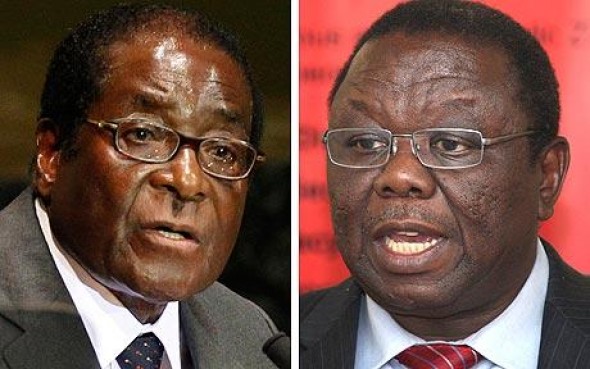By Derek Matyszak
The provisions of Zimbabwe’s Constitution are clear: Parliament must dissolve no later than the end of its five-year life span which, calculated from the day President Mugabe took office, is June 29, 2013.

It is also clear that elections must be held no later than four months after the dissolution of Parliament, that is, by October 29, 2013. These are clear and unambiguous provisions in the Constitution. But in recent years, they have been muddied, thanks to several confused and conflicting statements.
Since 2010 it has been repeatedly claimed that the lifespan of the Government of National Unity (GNU) — the coalition between ZANU-PF and the MDC — is constitutionally limited, and so would legally expire two years after it took office in February, 2011. There was no legal basis for this claim.
When this date came and went, the claims of a two-year life span morphed into claims that elections could only be held once certain political reforms, and most prominently the crafting of a new Constitution, were complete. This claim is also without any legal foundation.
With the completion of the Constitution-drafting process, the confusion continued after Mr Mugabe lodged an affidavit with the courts as part of an application seeking to postpone the implementation of an order requiring him to call by-elections.
In the affidavit, Mr Mugabe said he “was desirous” of holding general elections before March 31, 2013, and the by-elections would be part of this process. This was then wrongly interpreted by some to mean that the President was legally bound to hold the general election by this date.
On the eve of the March 31, 2013 cutoff date, with the general election yet to be announced, Mugabe again approached the court to delay the announcement of the by-elections. This time the assertion was made that since Parliament will dissolve on June 29, 2013 at the latest, the general election would be held before this date.
June 29 then came to be considered as the latest day for elections, all previous convictions as to an earlier mandatory deadline having been forgotten.
The June 29 date gained further impetus when an editorial appeared in The Herald newspaper stating that the new Constitution provided that elections must be held 30 days before the dissolution of Parliament — and that elections must thus be held before June 29.
The editorial wrongly said that it would be unconstitutional for the country to be without a Parliament after June 29. However, the draft constitution makes it clear that it is the provisions of the current constitution which will apply in relation to elections after the dissolution of Parliament, not the new constitution.
Professor Welshman Ncube, a leader of the MDC, mistakenly and uncharacteristically stated during a radio interview that elections must be held within 90 days, rather than four months, of the dissolution of Parliament.
Another commentator claimed that since no person may be a Minister if they have ceased to be a Member of Parliament for longer than three months, the executive would cease to exist three months after the dissolution of Parliament in June.
According to this logic, elections would have to take place by September 2013. The claim overlooked a provision in the Constitution that the three-month period does not apply if Parliament is not in session.
There are two other issues relating to the timing of the elections which require consideration:
The first is whether Prime Minister Morgan Tsvangirai’s consent is required in setting the date for the general election. The short answer is: no.
The long answer is that the Prime Minister’s consent in this regard pertains to the dissolution of Parliament, and not the actual election date. His consent is required if the automatic dissolution of Parliament is anticipated by a Presidential Proclamation dissolving Parliament before June 29, as a legal prelude to the calling of a general election.
Accordingly, if an election is to be held before June 29, 2013, Parliament must be dissolved before this date and the Prime Minister’s consent is required. In effect, the Prime Minister’s consent is required for any election date before June 29, but not for any date after.
Parliament stands automatically dissolved after that date, rendering the Prime Minister’s consent for dissolution obsolete.
Secondly, the dates set in a Presidential proclamation of elections must conform to statutory time limits. These time limits, setting the minimum and maximum dates after the date of the proclamation, within which the nomination courts approving candidates must sit, and the minimum and maximum dates for the election of these candidates after the sitting of the nomination court, are currently confused due to some drafting errors in the legislation.
This problem will undoubtedly be attended to when the Electoral Act is amended to align with the new Constitution. The amended Electoral Act will probably provide that the minimum and maximum dates for the nomination court are 14 and 30 days respectively and the dates for the general election thereafter, 42 and 63 days respectively.
Thus for an election to be held by the October 29, 2012, as required by the Constitution, the date will need to appear in a Presidential Proclamation made no later than September 3, 2013.
You do the maths. ZimbabweElection.com
Derek Matyszak is a constitutional law expert and senior research fellow at the Harare-based think tank Research and Advocacy Unit (RAU).





